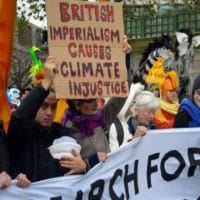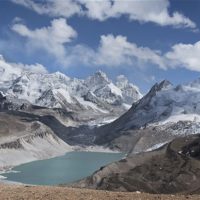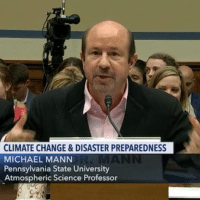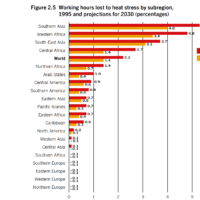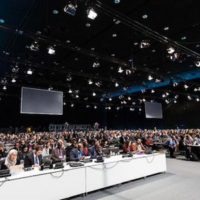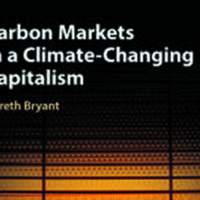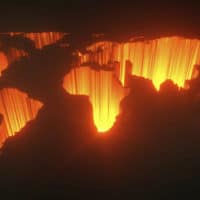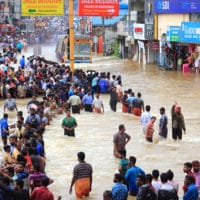-
An extraordinary Twitter exchange with Richard Tol
I had an extraordinary Twitter Exchange with Richard Tol over the last few days. I’ve written this post to preserve that exchange in case, at a future date, Tol decides to delete his tweets. They provide a superb window into the thinking that lies behind mainstream economic modelling of climate change, and why this has led to humanity dangerously delaying taking action against climate change.
-
Global Britain’s Real Climate Changers: Big Oil Must Be Taken Down
There is no global social unity in the face of climate disaster. Yet we need a genuinely internationalist rebellion against the corporations at the extractive imperialist heart of British capitalism. Their extinction as a species is required to save the planet.
-
Redwashing capital
Left tech bros are honing Marx into a capitalist tool
-
Breaching a “carbon threshold” could lead to mass extinction
Carbon dioxide emissions may trigger a reflex in the carbon cycle, with devastating consequences, study finds.
-
Himalayan glaciers retreating fast: Cold War spy satellites helped find the fact
Glacier melt in the Himalayas today is twice as fast as it was before 2000. With conditions remaining unchanged, the glaciers are likely to lose two-thirds of their total ice.
-
Oral opening statement from Michael Mann testimony to U.S. House Oversight Committee hearing on climate change & natural disasters
And I would also like to emphasize that we’re using the term “natural disasters” but in many cases there is absolutely nothing natural about the disasters we are talking about. We’re not saying they have been caused by climate change, we’re saying that it has worsened them. That’s what the research shows.
-
Burnt workers are the newest wave of climate casualty
The International Labor Organization (ILO) has just released a brief—but very important—report on the impact of heat stress on workers. What the ILO finds is that the areas of the world most threatened by heat deaths of workers are Southern Asia and Western Africa.
-
Our globe is burning!
Peter Linebaugh’s book comes with a long subtitle, a pithy summary of its contents: A Tale at the Crossroads of Commons and Closure, of Love and Terror, of Race and Class, of Kate and Ned Despard. His timeframe is the period between 1789 and 1804 when, in his view, a series of connected events took place in England, Ireland, France, the Caribbean and North America that formed an Atlantic crucible forging the capitalist world we have lived in since.
-
Climate change, dust bowls, fishery collapse: metabolic rifts of capitalism and the need for socialism
Humankind and the environment are hurtling toward unprecedented ecological crises. Global warming, sea level rise, and weather extremes due to carbon emissions are catastrophic enough, but they will mix and combine with ocean acidification, air and chemical pollution, water shortages, deforestation, fishery collapse, soil erosion, and mass extinction, throwing both nature and society off a cliff into the unknown.
-
Hooray, the Arctic is melting! Say WHAT?
It’s officially summer. Time for a swim, a cold beer, and a new slew of catastrophic climate changes…
-
The UN climate talks are coming to Britain. The climate justice movement will be ready
This week it was announced that the 2020 United Nations climate change conference–the so-called ‘Conference of the Parties’ (COP)–is set to take place in the UK.
-
‘Report the urgency! This is a climate emergency!’
“This is the biggest crisis in human history. What are we going to tell our children when they ask us: why didn’t we do anything to stop it while we still had time?”
-
Carbon markets in a climate-changing capitalism
Carbon Markets in a Climate-Changing Capitalism offers an account of why these earlier expectations were not matched by experience. While the contradictions of market solutions have not gone away, the difference this time is that we are just over a decade away from the IPCC’s 2030 benchmark for 1.5°C. The concentration and centralisation of emissions instead points towards a different pathway that can meet this challenge – one that begins by confronting the disproportionate control the biggest polluters have over our climate future.
-
Capital and climate in the critique of the State
This is the second in a series of posts comprising a symposium on the Marxist tradition of state theory and its contemporary lineages.
-
Global inequality in a time of climate emergency
Our worlds richest have a great deal of money. They also have the power to decide whether our civilization sinks or swims. So what can we do?
-
To survive: we need a global awakening much bigger than a “revolution,” much deeper than just ending capitalism
The climate apocalypse will soon kill all of us (including the plutocrats), if we don’t take drastic measures right away. But the plutocrats are blocking those measures, because they don’t want anything cutting into their short-term profits. In this video I discuss the crazy culture that has us headed toward extinction. To survive, we need an immense cultural change.
-
Nine ways scientists can support a people’s Green New Deal
In late 2018, the Green New Deal (GND) vaulted into the center of U.S. politics thanks to Rep. Alexandria Ocasio-Cortez (D-NY) and the young activists of the Sunrise Movement. Since then, the GND has become one of the most hotly debated issues in mainstream politics and has helped inspire an upsurge in climate justice activism and organizing.
-
Strike before the planet gets hot
Greta Thunberg has called for a world-wide strike on Friday September 27-for children and adults. Here’s how to make this a reality.
-
Why it’s important to connect anti-imperialism to climate action
Internationalist struggles make it possible for the oppressed of the world to unite against the oppressors of the world.
-
Students from 1,600 cities just walked out of school to protest climate change. It could be Greta Thunberg’s biggest strike yet
Hundreds of thousands of students around the world walked out of their schools and colleges Friday in the latest in a series of strikes urging action to address the climate crisis. According to event organizers Fridays for Future, over 1664 cities across 125 countries registered strike actions, with more expected to report turnouts in the coming days.


